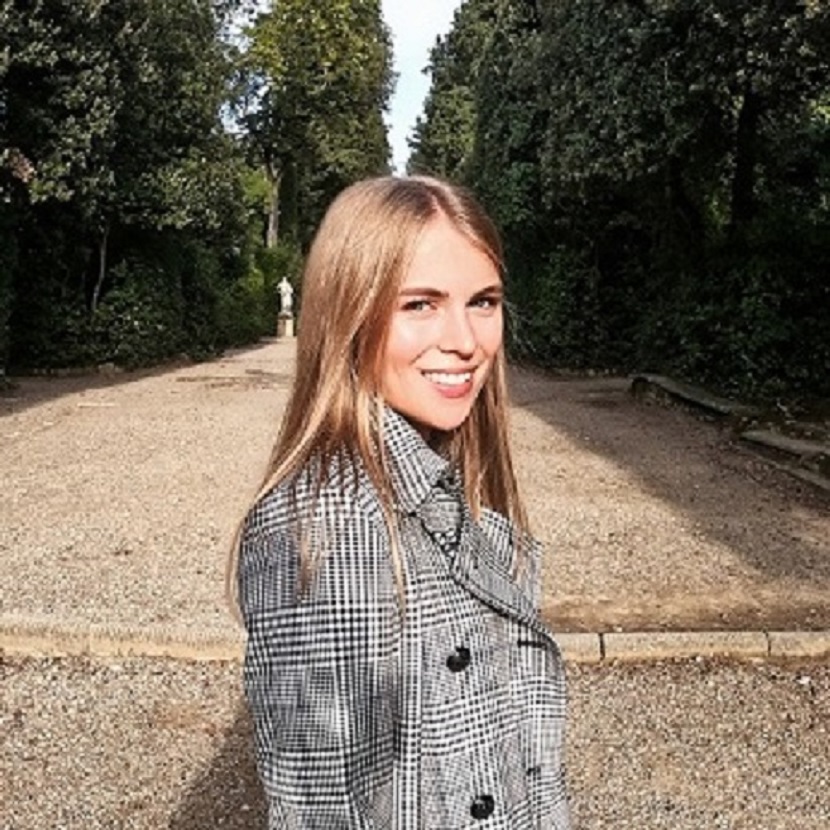Tereza Michálková
Tereza Michálková
Tereza Michalková comes from Zlín and graduated from the Institute of Economic Studies only recently, in 2020. During her studies at the IES, she passed a study stay at the University of Bologna, where she studied marketing and econometrics. She tried her first jobs, working at Komerční banka and Česká spořitelna, where she worked in administrative and telemarketing positions. Since 2018, Tereza has worked as a research assistant at CERGE-EI, later working there as a PR intern and development support. She also worked as an intern at the Prague office of Procter & Gamble.

After completing her bachelor's degree at IES, Tereza joined the Vrije Universiteit Amsterdam, where she studies advanced econometrics and marketing. Since spring 2021, she has been working at Churned in the Netherlands.
In her free time, Tereza enjoys walking, practicing yoga, playing the piano or ukulele.
Tereza, from the position of a very recent IES graduate, could you describe how you managed the transition to a foreign university, what was the biggest challenge and if there is anything you miss in Amsterdam compared to IES....
The biggest challenge, which I couldn't have really imagined beforehand, was the rigors of a yearlong Master's degree, with courses running in two-month blocks. In practice, this means that an amount of a semester coursework at IES is compressed into two months, including all assignments and exams. It took me a while to get used to this pace. Furthermore, at this point in time it is probably not surprising to say that another big challenge was adapting to the online learning environment and getting to know my classmates. Meeting new people and having direct contact with my classmates on a daily basis is an important factor in my studies that I currently lack compared to the IES. However, this experience is new to everyone and I think that despite this, my classmates and I have found our way (online) to each other.
You spent your Erasmus exchange stay in Bologna in Italy, at the most prestigious Italian university where you can study economics. How do you remember this time, what did you like there?
In Bologna, in addition to the compulsory subjects, I was able to try studying specific marketing subjects that were not offered by the IES, which later helped me a lot when choosing a Master's degree abroad. I was pleasantly impressed with the quality and expertise of the teachers and also with how much emphasis they put on connecting theory and practice in projects for real companies.I remember Erasmus fondly, it gave me the opportunity to study in a beautiful city, travel around Italy and make some friends from all over the world.
You are currently working at Churned, in the Netherlands. Was it difficult to get a position abroad where you had only been for a relatively short period of time?
I came across the job offer at Churned by chance when I noticed a post that one of my econometrics professors, associated with Churned, was looking for interns. I liked the company's focus because it was close to my specialisation, so I sent an email and a positive response came back the next day. However, I think I was rather an exception and the process is much more challenging without the right contacts, as the competition in the Netherlands is significant.
Is your job helpful for writing your final thesis, is it common in the Netherlands? Is the thesis more practical, based on the professional experience from work?
Specifically in my field of study, it is not very common for students to write their thesis in a company, maybe partly because Econometrics at VU Amsterdam is considered a very theoretical programme. The final thesis in Churned is therefore, in contrast to the content of the compulsory courses, very practical and, I must say, difficult in many ways, as the theory taught in my case does not match the challenging topic of the thesis.
In the Czech Republic you passed an internship at Procter and Gamble, you also worked briefly in administration at two banks or helped with PR at CERGE-EI. I assume that each job position has moved you somewhere. According to your experience, what would you recommend to those interested in internship at school, to take anything, or rather wait, for the right position and choose wisely?
Throughout my studies at the IES, I have been looking for what I could enjoy in terms of my field of study, job description or company size, which is why the list of my internships and work experience during my studies is so diverse. Therefore, I cannot give a specific universal answer for all prospective interns, as some may have a specific idea from their first year of study that they are going for. Either way, I am glad for my journey, as with each new experience, the idea of my ideal position has formed more clearly in my mind, which I am now happy to wait for.
What are your next study and career plans?
After graduation I would like to work in a position similar to my master's specialisation, i.e. connecting data and marketing. For now I am looking at both job markets, Dutch and Czech, and will see what comes up.
What do you enjoy doing in your free time? How do you relax?
I love nature, so I relax most when I take a long walk in the woods. I also like to practice yoga and play the piano. However, since I don't have access to a piano in Amsterdam, I decided to learn the ukulele, which brings me great joy.







